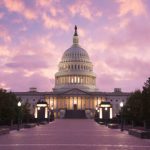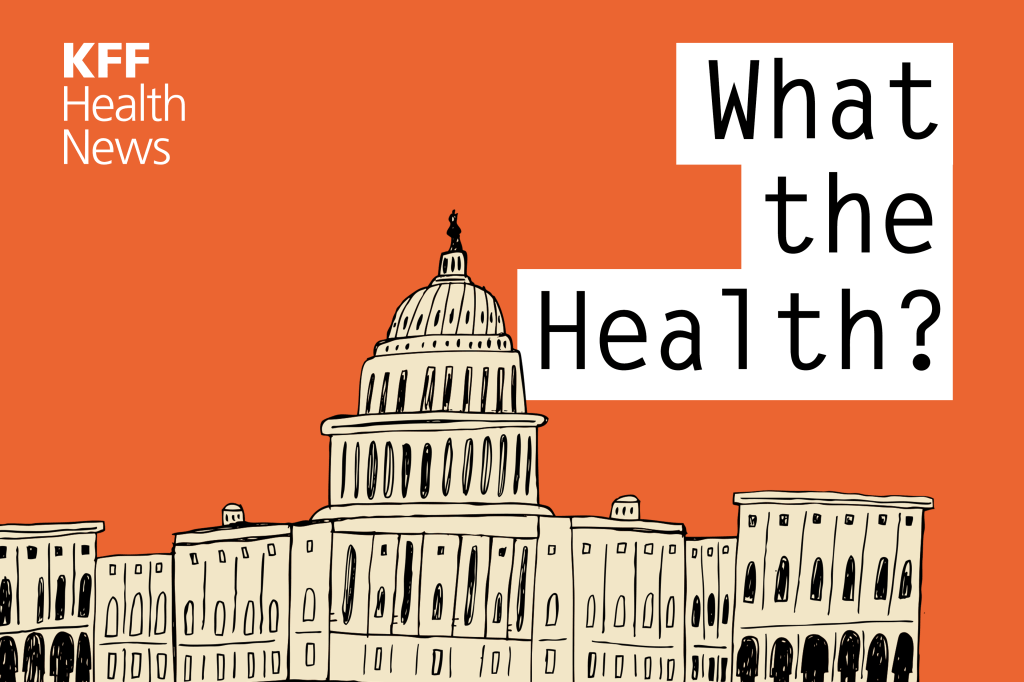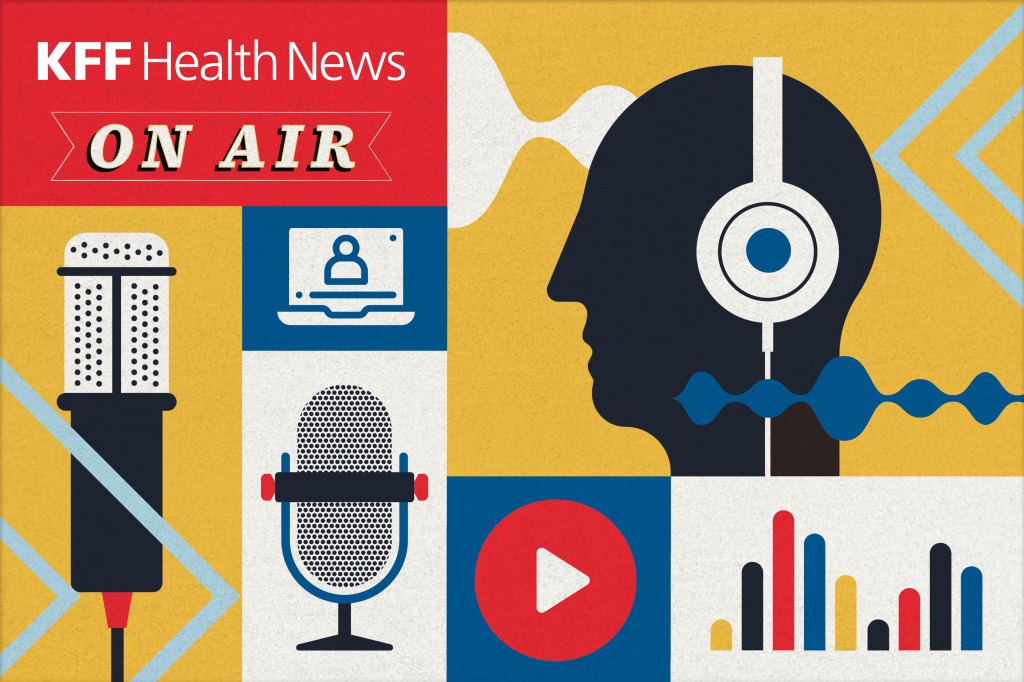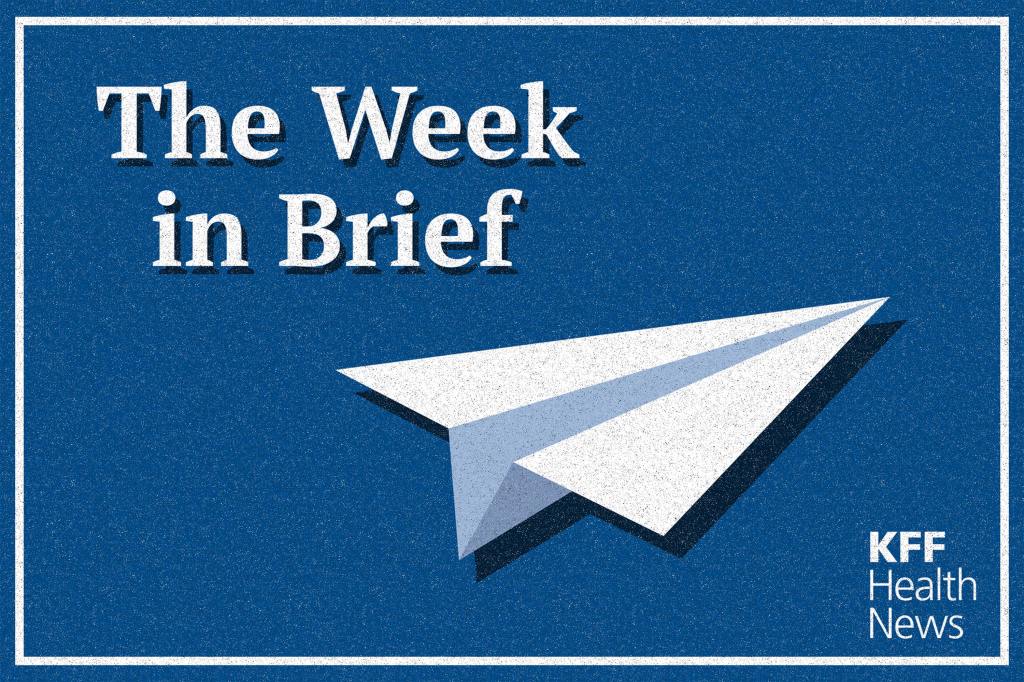The Host
Julie Rovner
KFF Health News
Julie Rovner is chief Washington correspondent and host of KFF Health News’ weekly health policy news podcast, “What the Health?” A noted expert on health policy issues, Julie is the author of the critically praised reference book “Health Care Politics and Policy A to Z,” now in its third edition.
Much of the hubbub in health care this year has been focused on Medicaid, which faces dramatically reduced federal funding as the result of the huge budget bill signed by President Donald Trump earlier this month. But now the attention is turning to the Affordable Care Act, which is facing some big changes that could cost many consumers their health coverage as soon as 2026.
Meanwhile, changes to immigration policy under Trump could have an outsize impact on the nation’s health care system, both by exacerbating shortages of health workers and by eliminating insurance coverage that helps keep some hospitals and clinics afloat.
This week’s panelists are Julie Rovner of KFF Health News, Julie Appleby of KFF Health News, Jessie Hellmann of CQ Roll Call, and Alice Miranda Ollstein of Politico.
Panelists
Julie Appleby
KFF Health News
Jessie Hellmann
CQ Roll Call
Alice Miranda Ollstein
Politico
Among the takeaways from this week’s episode:
Many Americans can expect their health insurance premiums to rise next year, but those rate hikes could be even bigger for the millions who rely on ACA health plans. To afford such plans, most consumers rely on enhanced federal government subsidies, which are set to expire — and GOP lawmakers seem loath to extend them, even though many of their constituents could lose their insurance as a result.
Congress included a $50 billion fund for rural health care in Trump’s new law, aiming to cushion the blow of Medicaid cuts. But the fund is expected to fall short, especially as many people lose their health insurance and clinics, hospitals, and health systems are left to cover their bills.
Abortion opponents continue to claim the abortion pill mifepristone is unsafe, more recently by citing a problematic analysis — and some lawmakers are using it to pressure federal officials to take another look at the drug’s approval. Meanwhile, many Planned Parenthood clinics are bracing for an end to federal funding, stripping money not only from busy clinics where abortion is legal but also from clinics that provide only contraception, testing for sexually transmitted infections, and other non-abortion care in states where the procedure is banned.
And as more states implement laws enabling doctors to opt out of treatments that violate their morals, a pregnant woman in Tennessee says her doctor refused to provide prenatal care, because she is unmarried.
Also this week, Rovner interviews Jonathan Oberlander, a Medicare historian and University of North Carolina health policy professor, to mark Medicare’s 60th anniversary later this month.
Plus, for “extra credit” the panelists suggest health policy stories they read this week that they think you should read, too:
Julie Rovner: KFF Health News’ “Republicans Call Medicaid Rife with Fraudsters. This Man Sees No Choice but To Break the Rules,” by Katheryn Houghton.
Julie Appleby: NPR’s “Many Beauty Products Have Toxic Ingredients. Newly Proposed Bills Could Change That,” by Rachel Treisman.
Jessie Hellmann: Roll Call’s “Kennedy’s Mental Health Drug Skepticism Lands at FDA Panel,” by Ariel Cohen.
Alice Miranda Ollstein: The Associated Press’ “RFK Jr. Promoted a Food Company He Says Will Make Americans Healthy. Their Meals Are Ultraprocessed,” by Amanda Seitz and Jonel Aleccia.
Also mentioned in this week’s podcast:
KFF Health News’ “Insurers and Customers Brace for Double Whammy to Obamacare Premiums,” by Julie Appleby.
The Congressional Budget Office’s “Estimated Budgetary Effects of Public Law 119-21, to Provide for Reconciliation Pursuant to Title II of H. Con. Res. 14, Relative to CBO’s January 2025 Baseline.”
The CBO’s “How Changes to Funding for the NIH and Changes in the FDA’s Review Times Would Affect the Development of New Drugs.”
KFF’s “KFF Health Tracking Poll: Public Views on Recent Tax and Budget Legislation,” by Grace Sparks, Shannon Schumacher, Julian Montalvo III, Ashley Kirzinger, and Liz Hamel.
The Washington Post’s “Digging Into the Math of a Study Attacking the Safety of the Abortion Pill,” by Glenn Kessler.
Credits
Francis Ying
Audio producer
Emmarie Huetteman
Editor
To hear all our podcasts, click here.
And subscribe to KFF Health News’ “What the Health?” on Spotify, Apple Podcasts, Pocket Casts, or wherever you listen to podcasts.
KFF Health News is a national newsroom that produces in-depth journalism about health issues and is one of the core operating programs at KFF—an independent source of health policy research, polling, and journalism. Learn more about KFF.
USE OUR CONTENT
This story can be republished for free (details).








